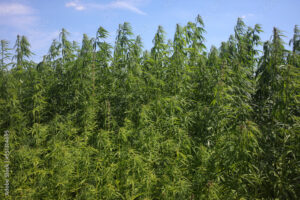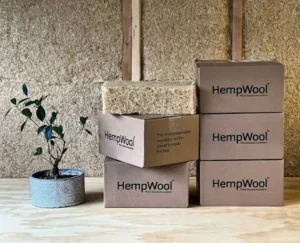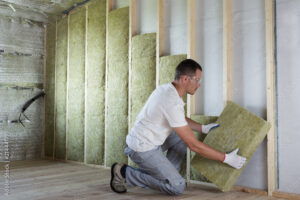When it comes to building or renovating a home, insulation is often overlooked as a key contributor to energy efficiency and environmental impact. One eco-friendly option that’s gaining traction is cannabis insulation—yes, insulation made from hemp, a variety of the cannabis plant. This sustainable building material has been generating buzz for its impressive benefits, but like any product, it also comes with its own set of limitations.
If you’re a homeowner, environmentally-minded consumer, or builder exploring greener alternatives, here’s a detailed look at the pros and cons of cannabis insulation.
(1792) Insulation Types and Pros & Cons – 12.20.2023 – YouTube
What is Cannabis Insulation? 
Cannabis insulation, often referred to as “hempcrete” or “hemp insulation,” is made from the woody inner fibers of the hemp plant, combined with a lime-based binder and water. When cured, this material becomes a lightweight, breathable insulation option that can be used in walls, roofs, and floors.
Unlike fiberglass or foam-based insulations, hemp insulation is 100% natural, making it an excellent choice for those who want to reduce their environmental footprint.
The Pros of Cannabis Insulation
1. Eco-Friendly and Sustainable
Hemp is a highly renewable resource. It grows fast—typically reaching maturity in just 3 to 4 months—and requires minimal water, pesticides, or fertilizers. Additionally, hemp cultivation actually benefits the soil by improving its nutrient levels.
Compared to traditional insulation materials that rely on petrochemicals, hemp insulation offers a sustainable alternative, reducing your home’s carbon footprint.
2. Energy Efficiency
Cannabis insulation excels at maintaining consistent indoor temperatures. Thanks to its ability to regulate heat and humidity, hemp-based insulation contributes to a more energy-efficient home, reducing heating and cooling costs.
3. Highly Breathable and Moisture Resistant
Hemp insulation is naturally breathable, allowing for improved air circulation and moisture control. This makes it resistant to mold and mildew, which is especially beneficial for homes in humid climates or for people with allergies.
4. Fire and Pest Resistant
One surprising benefit of hemp insulation is that it is fire retardant. When combined with lime, the material provides excellent fire resistance without the need for chemical additives. Its composition also acts as a natural deterrent for pests like rodents and insects—an added bonus for homeowners.
5. Durability
Hemp insulation is built to last. With its tough yet lightweight structure, it’s less likely to degrade over time compared to other natural options like wool or cotton. This means fewer replacements or repairs in the long run.
6. Non-Toxic and Safe
Unlike fiberglass, which can release tiny glass particles into the air, cannabis insulation is safe to handle and install, even without protective gear. It’s free from harmful chemicals, making it a healthier option for you, your family, and even the people building your home.
The Cons of Cannabis Insulation
1. Higher Initial Cost
One of the main drawbacks of cannabis insulation is its upfront cost. Because manufacturing and transporting hemp products is less widespread than traditional insulation materials, prices can be higher—though costs may decrease as the industry scales up.
While the initial investment may seem steep, it’s worth considering the long-term energy savings and durability that hemp insulation offers.
2. Availability
Hemp insulation isn’t as readily available as mainstream options such as fiberglass or spray foam. Depending on your location, finding a supplier might be challenging, and shipping costs may add to the expense.
3. Lower R-Value Compared to Alternatives
R-value (thermal resistance) is a key measure of how well an insulation material resists heat flow. While hemp insulation performs adequately, its R-value is generally lower than materials like polyurethane foam or fiberglass. This means you might need thicker layers of hemp insulation to achieve the same level of thermal efficiency.
4. Heavier Weight
Cannabis insulation, particularly hempcrete, tends to be heavier than traditional materials. This can make it more labor-intensive to install and may require structural adjustments, particularly in less robust buildings.
5. Limited Awareness
Despite growing interest, cannabis insulation is still a niche product. Many builders and contractors may not be experienced with working with hemp-based materials, which could result in additional costs or delays as you educate and align your team.
Who Should Consider Cannabis Insulation? 
Hemp insulation is particularly appealing if you:
- Prioritize sustainability and eco-friendliness in your building materials.
- Want to improve indoor air quality and reduce exposure to toxic chemicals.
- Are looking for a durable, long-term insulation solution with low maintenance needs.
- Are willing to invest a little more upfront for long-term energy savings and environmental benefits.
However, if you’re working with a tight budget, need insulation immediately, or live in an area with limited access to hemp-based products, traditional options may still be the most practical choice.
Final Thoughts
Cannabis insulation offers an innovative, eco-friendly alternative to conventional materials. Its sustainability, energy efficiency, fire and pest resistance, and other benefits make it a standout choice for the environmentally conscious. However, hurdles like availability, cost, and lower R-value shouldn’t be overlooked.
For homeowners, builders, or eco-conscious consumers curious about sustainable building materials, cannabis insulation could be the perfect fit. If the advantages outweigh the challenges for your specific needs, this growing trend in green construction could help you create a home that’s both energy-efficient and kind to the planet.
Thinking about incorporating cannabis insulation into your next project? Share your thoughts or ask questions in the comments below!
Share with us your Contractor Con Horror story.
For Tons of Great Free Information please hit “Like & Subscribe”
Websiteconstructionconsumeradvocacyinstitute.com
Podcastanchor.fm/galloway
www.youtube.com/@ConstructionConsumerAdvocacy


